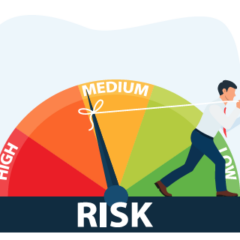Published on
My Doctor Said My Medicines Can Cause Bleeding…Are There Other Side Effects I Should Know About?
Reviewed by Margaret Fang, MD, MPH
Medicines for blood clotting conditions (including blood thinners and antiplatelet agents) help reduce your risk of getting a clot – but many medicines have side effects.
When starting any new medicine, side effects are common. Side effects are any symptoms you may experience due to the medicine itself; these are different than the symptoms from your clotting condition.
The most common side effect of medicines for preventing blood clots is an increased risk of bleeding. People taking anticoagulants may bruise easily or experience “nuisance bleeding” (like more frequent nosebleeds), which is also called “patient-relevant bleeding.”These side effects can occur in up to 75% of people taking these types of medicines.
Your doctor and care team can help you reduce this risk by providing important tips about how to manage potential bleeds.
But did you know that you may experience other side effects of medicines for blood clots that you may not be familiar with?
Which Medicines Treat Blood Clotting Conditions?
Anticoagulants, also called blood thinners, and antiplatelet medicines are prescribed to treat and prevent blood clots.
- Commonly Prescribed Anticoagulants
- Warfarin (Jantoven®)
- Apixaban (Eliquis®)
- Rivaroxaban (Xarelto®)
- Dabigatran (Pradaxa®)
- Edoxaban (Savaysa®)
- Commonly Prescribed Antiplatelets
- Aspirin
- Clopidogrel (Plavix®)
- Ticagrelor (Brilinta®)
- Prasugrel (Effient®)
While each type of medicine works a bit differently, you may experience some general side effects when starting one of these medicines for the first time.
What Are Other Potential Side Effects of Anticoagulants and Antiplatelets?
Anticoagulants
In addition to bleeding events, anticoagulants can also cause indigestion, dizziness, headaches, itchy skin, constipation, and diarrhea.
Other troublesome side effects of anticoagulants may include:
- Hair loss
- Feeling cold
- Burning or prickling sensations
Antiplatelets
Just like with anticoagulants, increased bleeding is also the most common side effect associated with antiplatelet agents. Additional side effects may include shortness of breath and upset stomach.
Additional side effects of antiplatelets are similar to anticoagulants and may include:
- Chest pain
- Stomach pain
- Ringing in the ears (tinnitus)
Always call your doctor or go to the ED if you start to experience troublesome side effects when starting a medicine.
What Else Should I Know about My Medicines?
When your doctor prescribes a medicine, they will review all of the possible side effects you may experience from your specific treatment. Your doctor may also explain that your medicine can interact with other medicines, foods, or supplements that you take.
Drug interactions can increase or decrease the effectiveness of your medicine or the other medicines you’re taking. They may also cause side effects.
That’s why it’s important to tell your doctor and care team about all of the medicines and supplements you’re taking and if you start or stop taking a medicine.
Here are some helpful tips to help you stay on top of your medicines:
- Make a list of all of the medicines you take, including over-the-counter medicines, supplements, and herbs, and carry it with you.
- If possible, always use the same pharmacy to fill your prescriptions.
- Talk to your pharmacist or care team if you’re having trouble affording your medicines.
- Take notes on your doctor’s instructions for your medicines during your visit.
- Use a pill box to help you organize your medicines.
- Set an alarm on your phone to remind you when to take your medicine every day.
If you have any questions about your medicines, don’t hesitate to ask your doctor, pharmacist, or other member of your healthcare team. And always take your medicines as prescribed!
Learn more about what to expect when starting a new medicine for blood clots.
*Originally published in The Beat — June 2024. Read the full newsletter here.



